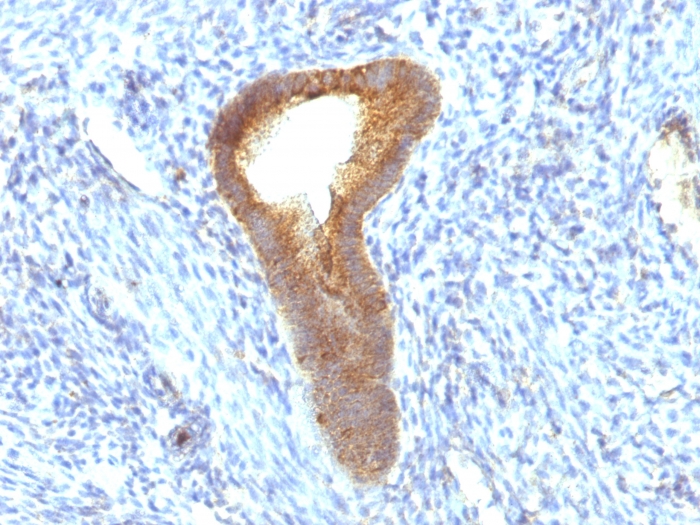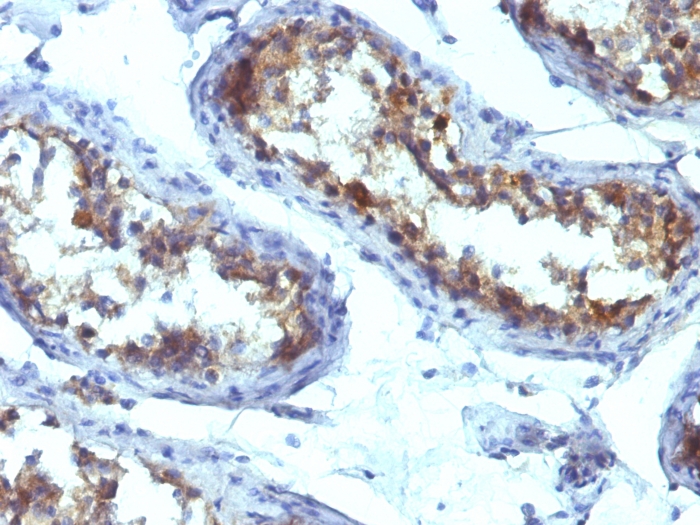Learn about our comprehensive antibody validation methods to ensure monospecificity. Antibody Validation>>

Formalin-fixed, paraffin-embedded human Endometrial Carcinoma stained with Alkaline Phosphatase Mouse Monoclonal Antibody (ALPL/597).

Formalin-fixed, paraffin-embedded human Testicular Carcinoma stained with Alkaline Phosphatase Mouse Monoclonal Antibody (ALPL/597).

Formalin-fixed, paraffin-embedded human Ovarian Carcinoma stained with Alkaline Phosphatase Mouse Monoclonal Antibody (ALPL/597).
There are at least four distinct but related alkaline phosphatases: intestinal, placental, placental-like, and liver/bone/kidney (tissue non-specific). The first three are located together on chromosome 2, while the tissue non-specific form is located on chromosome 1. The product of this gene is a membrane bound glycosylated enzyme that is not expressed in any particular tissue and is, therefore, referred to as the tissue-nonspecific form of the enzyme. The exact physiological function of the alkaline phosphatases is not known. A proposed function of this form of the enzyme is matrix mineralization; however, mice that lack a functional form of this enzyme show normal skeletal development. This enzyme has been linked directly to hypo-phosphatasia, a disorder that is characterized by hypercalcemia and includes skeletal defects.
There are no reviews yet.